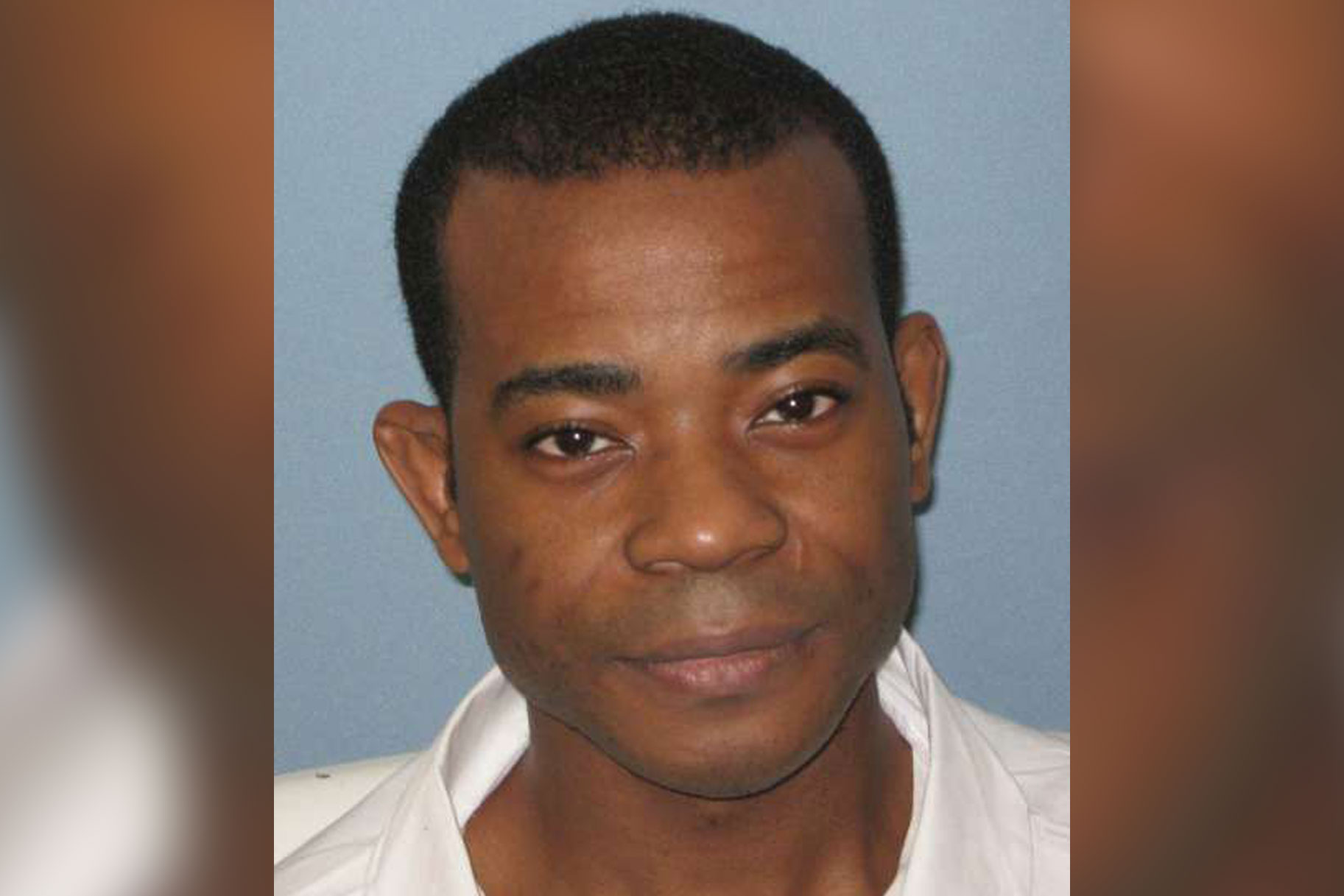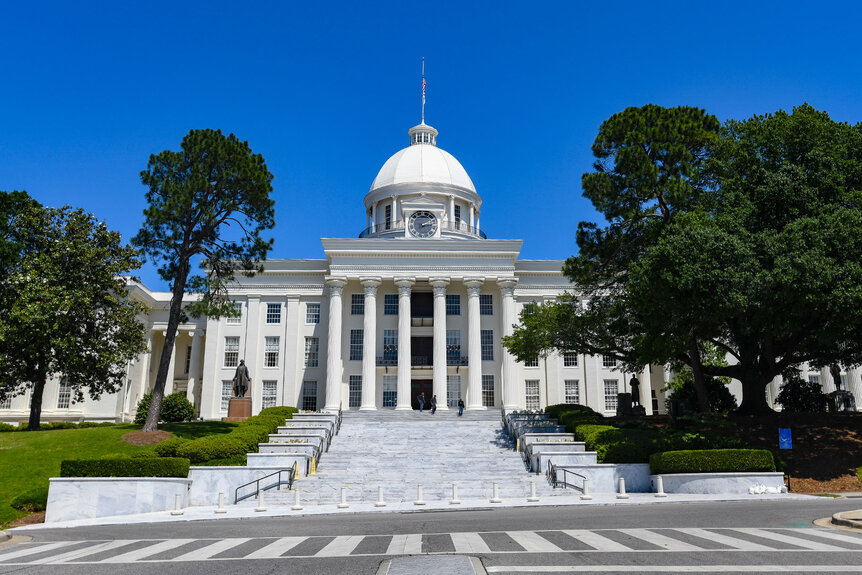Create a free profile to get unlimited access to exclusive videos, breaking news, sweepstakes, and more!
Alabama Death Row Inmate Executed After Governor Denies Clemency, Despite Activists' Claims He Was Innocent
Nathaniel Woods’ execution was momentarily halted minutes before he was lethally injected, only for his clemency plea to be denied by Alabama’s Governor Kay Ivey.

On Thurday, Nathaniel Woods ordered his last meal. The 44-year-old requested sweet potatoes, spinach, cooked apples, fries, two oranges, and a chicken leg, correctional officers said. He only took one bite of the chicken leg and refused the rest of his meal.
Hours later, Woods was hauled into a death chamber at William C. Holman Correctional Facility in Atmore, Alabama and was executed by lethal injection. Only his imam was present. Woods didn’t make a final statement. His execution lasted 22 minutes, a spokesperson for his family said. He was pronounced dead at 9:01 p.m.
Woods’ silence stood in stark contrast to the chorus of supporters and activists — including Martin Luther King III — who had mounted a highly publicized attempt to halt his execution in the days leading up to his death.
In the hours leading up to his execution, the man’s legal team and family were hopeful that Alabama Gov. Kay Ivey would intervene.
At 5:51 p.m. — nine minutes before Woods’ scheduled execution — officials temporarily halted proceedings so the U.S. Supreme Court could review his case.
But in the end, the eleventh-hour efforts to spare Woods’ life were futile. The Republican politician denied Woods’ clemency. He was executed three hours and one minute after his originally scheduled time.
“After thorough and careful consideration of the facts surrounding the case, the initial jury’s decision, the many legal challenges and reviews, I concluded that the state of Alabama should carry out Mr. Woods’ lawfully imposed sentence this evening,” Ivey wrote in a statement following the execution.
“Under Alabama law, someone who helps kill a police officer is just as guilty as the person who directly commits the crime,” she added.
Since 1983, Alabama has executed two defendants for conspiring to commit capital murder, Ivey said.
Woods, prosecutors alleged, lured law enforcement into a drug house where his co-defendant, Kerry Spencer gunned down three Birmingham police officers with an assault rifle on June 17, 2004.
But the 44-year-old former crack dealer’s supporters insisted he didn’t pull the trigger, nor did he conspire with Spencer to gun down police.
Around the time of Woods’ execution, a Change.org petition calling for clemency in his case had reached more than 100,000 signatures.
“The actions of the U.S. Supreme Court and the Governor of the State of Alabama are reprehensible, and have potentially contributed to an irreversible injustice,” Martin Luther King III, one of Woods’ most prominent supporters, tweeted on Thursday. “It makes a mockery of justice and constitutional guarantees to a fair trial.”
Even some of the victim’s families of the slain Birmingham officers called for clemency.
“I do not think Nathaniel is guilty of murder,” Kimberly Chisholm Simmons, the sister of murdered Birmingham officer Harley Chisholm III, said in a statement after Woods’ execution was temporarily stalled. “I urge Governor Ivey to reconsider her decision to not intervene. There is no harm in allowing more time for the courts to investigate.”
Woods’ supporters repeatedly asserted his trial was deeply flawed from the beginning. Particularly, many pointed to what they claimed was an archaic state statute that allowed the judge to override a jury’s non-unanimous decision and impose the death penalty in Woods’ case. Jurors had voted 10-2 in favor of capital punishment during his trial. Others accused Woods’ court-appointed defense attorney of misleading him into rejecting a plea deal that would have spared his life.
“Alabama once again disappointed those who had hoped that the state would value fairness more than the desire to simply carry out an execution,” Robert Dunham, executive director of the Death Penalty Information Center, told Oxygen.com on Friday.
Other criminal justice experts also condemned Woods’ execution and highlighted the case’s racial overtones.
“There’s no one who has a highly competent attorney at trial who is executed,” Evan Mandery, a law professor at John Jay College of Criminal Justice, told Oxygen.com. "These cases always stem from a lack of zeal and effectiveness with the defense. It’s not a sufficient condition, but it’s a necessary condition. No rich white person has ever been or ever will be executed.”
Woods is the 67th prisoner to be executed in Alabama since capital punishment was reinstated in 1976. His family wasn't immediately available for comment on Friday.






















